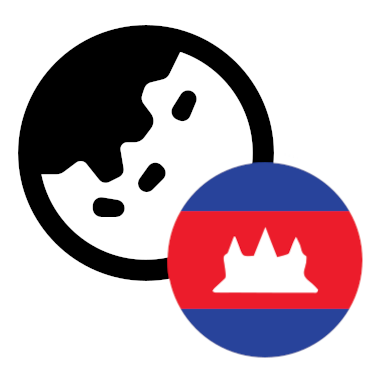Challenges in Sourcing Expansion
Businesses face various hurdles in diversifying their supply chain and procurement needs, especially in emerging markets. Nevertheless, these challenges present opportunities for new entrants and SMEs to diversify their global procurement needs in production hubs like Cambodia.
Tailored Solutions for Success
We offer customized services to address your business challenges in Cambodia.

Sourcing Services
Efficiently source products

Procurement Support
Streamlined procurement process

Market Navigation
Guidance in Cambodian market intricacies
Empowering Your Business Journey

How to Find and Vet Reliable Suppliers in Cambodia ?
Sourcing in Cambodia presents unique challenges and opportunities for new entrants and SMEs, requiring a thorough approach to supplier search, due diligence, and quality control to ensure reliability and compliance with international standards.
Finding factories in Cambodia
The Cambodian market is not as developed as more mature markets like China, making the supplier search process more time-consuming and complex. Ensuring that factories meet specific business needs, product standards, and export certifications requires a meticulous approach.
Due diligence is critical, involving comprehensive checks on potential suppliers to verify their credibility and operational capacity. This process includes evaluating certifications and compliance with international standards, which is almost mandatory in emerging markets to ensure the legality and quality of the sourced and manufactured products.

Established manufacturers in China are diversifying their production centers and opening sub-factories in neighboring countries such as Cambodia and Vietnam. This trend offers a broader and more developed landscape for producing goods that meet foreign standards, but it still presents challenges for startups and SMEs.
Vetting trustworthy manufacturers
Quality control is another cornerstone of manufacturing in Cambodia. Rigorous quality checks must be implemented throughout the production process to ensure that products meet the specified requirements and maintain high standards for exports. If you are considering diversifying your supply chain and leveraging Cambodian suppliers, you will need to hire a third party or identify the essential criteria for vetting and shortlisting the most reliable factories yourself.
Even though some suppliers have years of experience in the industry, it is just the tip of the iceberg. The entire scope of their processes, proven track record of delivering high-quality products consistently, and reliability are factors that need to be ensured by initial examination. This reliability is further reinforced by their commitment to maintaining transparent communication and efficient logistics. Using local sourcing agencies in Cambodia offers a dependable choice and on-the-ground expertise that can be quite valuable for businesses looking to root their supply chains in a new country like Cambodia.
Start Your Procurement Journey With Us
Benefits of Partnering with Us
Discover the advantages of collaborating with Giz Cambodia for your sourcing needs.
Efficient Sourcing
Streamline your sourcing process with our extensive network of trusted suppliers.
Quality Assurance
Ensure top-notch quality control at every stage of your production cycle.
Cost-Effective Solutions
Access cost-effective production solutions while maintaining international quality standards.
Questions and Answers about Sourcing Products in Cambodia
When considering sourcing and manufacturing products in Cambodia, it’s natural for foreign buyers to have misconceptions and questions. Cambodia is not as well-known as other manufacturing markets like China or Vietnam, leading to uncertainties about the benefits, challenges, and processes involved.

As a relatively emerging market, here are five common questions foreigners may have, along with detailed answers to help navigate the Cambodian manufacturing landscape.
What are the benefits of sourcing products from Cambodia?
Sourcing from Cambodia offers several benefits, including competitive labor costs, preferential trade agreements with major markets like the EU and the US, and an increasing number of manufacturers with experience in producing high-quality goods. Additionally, Cambodia’s strategic location in Southeast Asia allows for easy access to other major production hubs in the region, such as Vietnam and Thailand.
How can I ensure the quality of products manufactured in Cambodia?
Ensuring product quality involves several steps: conducting thorough due diligence on potential suppliers, performing regular factory audits, and implementing stringent quality control processes throughout production. Hiring a third-party inspection service or a local sourcing agent with expertise in quality assurance can provide additional layers of oversight to maintain high standards.
What challenges might I face when sourcing from Cambodia, and how can they be mitigated?
Some challenges include navigating different business practices, communication barriers, and the relatively less developed infrastructure compared to more established markets. These can be mitigated by working with local sourcing agencies, ensuring clear and consistent communication, and visiting suppliers to build strong relationships. Leveraging a team with multi-cultural backgrounds can also bridge the gap between different business environments.
Are Cambodian manufacturers compliant with international standards and certifications?
Many Cambodian manufacturers are increasingly compliant with international standards and hold relevant certifications such as ISO, BSCI, and WRAP. However, it is crucial to verify these certifications during the supplier vetting process. Conducting on-site visits and working with third-party auditors can help ensure that manufacturers meet the necessary standards.
What is the typical lead time for manufacturing and shipping products from Cambodia?
The lead time for manufacturing and shipping products from Cambodia can vary depending on the type of product, order volume, and the specific supplier. Generally, production lead times range from 30 to 90 days, with additional time needed for shipping. It’s important to discuss timelines with suppliers upfront and factor in potential delays related to customs clearance and logistics. Working with reliable logistics partners can help streamline the shipping process and reduce transit times.
Client Testimonials
Diversify your Supply Chain Today.
Contact Us Now!
OR SEND Us A WhatsApp MESSAGE:
